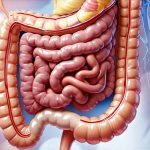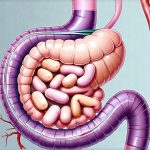Irritable Bowel Syndrome (IBS) is a chronic gastrointestinal disorder affecting millions worldwide. Characterized by abdominal pain, bloating, gas, diarrhea, and constipation – often in varying combinations – IBS significantly impacts quality of life. While the precise causes remain elusive, growing research points to complex interactions between gut microbiota, brain-gut axis dysfunction, immune activation, and dietary factors. Increasingly, histamine is emerging as a potential player in triggering or exacerbating IBS symptoms for some individuals.
Understanding how this naturally occurring chemical messenger functions within the body, and its connection to gastrointestinal health, can provide valuable insight into managing IBS flares and exploring personalized approaches to symptom relief. This article will delve into the role of histamine, its sources, mechanisms relevant to IBS, and potential avenues for exploration regarding dietary and lifestyle adjustments.
Histamine: A Multifaceted Molecule
Histamine is a vital compound produced by various cells in the body, including mast cells, basophils, and enterochromaffin-like (ECL) cells in the gastrointestinal tract. It plays crucial roles in numerous physiological processes like immune response, gastric acid secretion, neurotransmission, and vascular permeability. While essential for healthy function, an imbalance or heightened histamine activity can contribute to a range of health issues, including allergic reactions, inflammation, and potentially IBS symptoms in susceptible individuals.
Histamine isn’t solely produced within the body; it’s also present in many foods, particularly those that are fermented, aged, or spoiled. This external source adds another layer of complexity when considering histamine’s impact on gut health.
Histamine Intolerance & IBS
The concept of “histamine intolerance” describes a condition where the body’s capacity to metabolize histamine exceeds its production or intake, leading to systemic accumulation and associated symptoms. While not officially recognized as a medical diagnosis, it’s increasingly discussed in relation to chronic conditions like IBS. The gut plays a key role here because diamine oxidase (DAO), the primary enzyme responsible for breaking down ingested histamine, is found in high concentrations within the intestinal lining. Compromised DAO activity – due to genetic factors, inflammation, or gut dysbiosis – can reduce histamine breakdown and contribute to symptoms.
How Histamine Can Impact IBS Symptoms
Histamine’s influence on the gastrointestinal tract is multifaceted. It directly impacts gut motility, increasing contractions which can lead to diarrhea in some individuals. Conversely, it can also cause visceral hypersensitivity, meaning an amplified perception of pain even with normal stimuli, contributing to abdominal discomfort and bloating. Furthermore, histamine releases inflammatory mediators, potentially exacerbating intestinal inflammation already present in IBS sufferers or those with underlying gut sensitivities.
The interplay between histamine and the brain-gut axis is also significant. Histamine influences neuronal signaling within the gut and can affect mood and stress levels – factors known to heavily influence IBS symptoms. This bidirectional communication means that psychological stress can worsen histamine-related GI issues, creating a vicious cycle.
Dietary Sources & Mast Cell Activation
Certain foods are naturally high in histamine or can trigger its release from mast cells, immune cells found throughout the body, including the gut. Common culprits include fermented foods (sauerkraut, yogurt, kombucha), aged cheeses, smoked fish, processed meats, alcohol (especially red wine), and some fruits and vegetables (spinach, tomatoes, avocados). For individuals with suspected histamine intolerance or those experiencing IBS flares related to diet, identifying and minimizing these trigger foods might offer relief.
Mast cell activation syndrome (MCAS) is a condition where mast cells inappropriately release excessive amounts of histamine and other mediators. While distinct from histamine intolerance, MCAS can coexist with or contribute to IBS symptoms. Identifying and addressing potential triggers for mast cell activation – including food sensitivities, stress, and environmental factors – may be beneficial for some individuals experiencing significant gut distress.
Exploring Potential Management Strategies
Currently, there is no single diagnostic test for histamine intolerance. Assessment typically relies on evaluating symptom patterns, dietary history, and potentially DAO enzyme activity levels (though these tests are still under development). Managing potential histamine-related IBS requires a personalized approach. This might involve following a low-histamine diet, identifying and eliminating individual food triggers, supporting gut health through probiotics or prebiotics, managing stress levels, and addressing any underlying inflammation.
It’s crucial to emphasize that self-diagnosing and implementing drastic dietary changes without professional guidance is not recommended. Consulting with a healthcare provider – ideally one knowledgeable about IBS and histamine intolerance – can help determine the best course of action for your individual needs. They can assist in identifying potential triggers, assessing overall health status, and developing a comprehensive management plan.


















